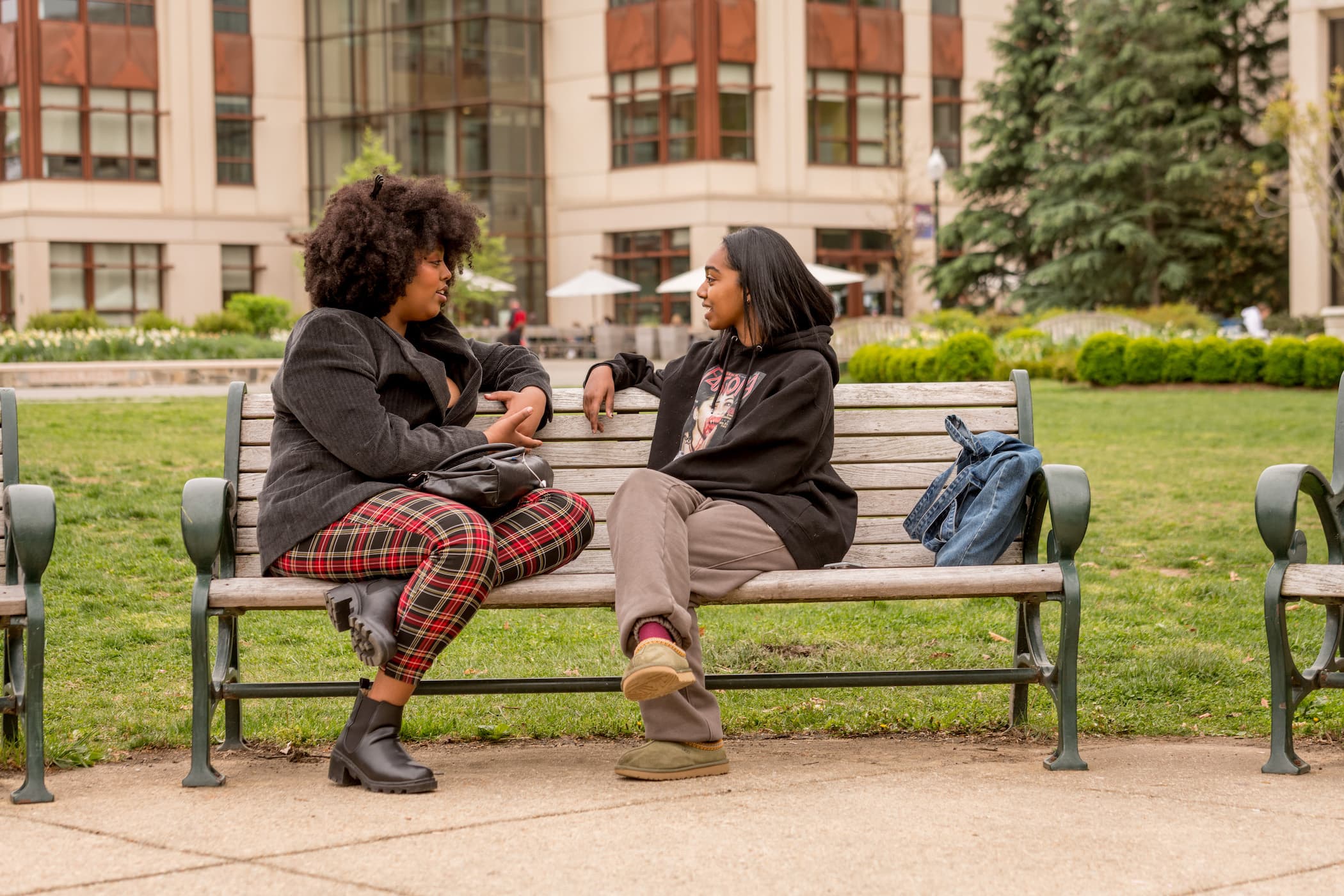You are here: American University Learning Communities AU Catalyst

AU Catalyst

Catalyzing Students Toward Success
AU Catalyst is a mentorship program that helps students position themselves as leaders in work, graduate school, and life. This learning community connects program participants with one another, faculty, staff, and alumni and explores building a mindset and other skill sets not typically taught in the classroom but important to life goals.
Students who are a part of AU Catalyst will learn how to build valuable long-term meaningful relationships in an increasingly complex world and better understand how to advocate for themselves and demonstrate what they can achieve.
Program Components and Resources
In partnership with the program’s managing director, Wim Taylor, AU Catalyst students participate in:
- Advising that aligns classroom experiences with students’ career aspirations
- Coaching that focuses on perseverance, resilience, adaptability, and advocacy so that students can navigate challenges and setbacks and reframe them as opportunities
- Consulting that helps students reverse-engineer career and graduate school goals to inform academic and extracurricular decisions
- Accountability check-ins for attaining academic, extracurricular, and personal goals
AU Catalyst students develop the mental attitudes, aptitudes, and philosophical approaches they need to be impactful leaders in all facets of their lives. They learn about topics not typically part of a classroom setting like emotional intelligence, informed decision-making, strategic thinking, personal finance, investing, and intentionality.
Through experiential learning opportunities, AU Catalyst students pursue their career interests by way of internships, interviews, and mentoring relationships. They practice and master skills employers look for in their employees and create compelling personal narratives that communicate how they think ahead, consider the future, and show initiative and commitment to their plans.
AU Catalyst students build community through events and programs that are educational, fun, and social. These include group dinners, networking receptions, an alumni connection picnic, classroom experiences, study breaks, and volunteering.
Financial support for study abroad application fees, graduate school test prep materials, two graduate school application fees, and some professional clothing for interviews and internships is available as part of the program.
